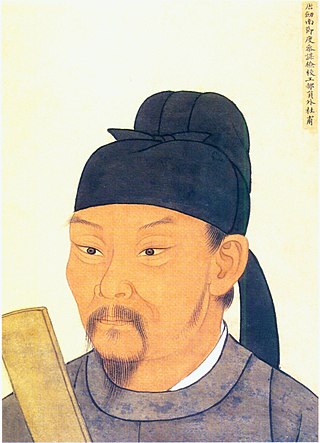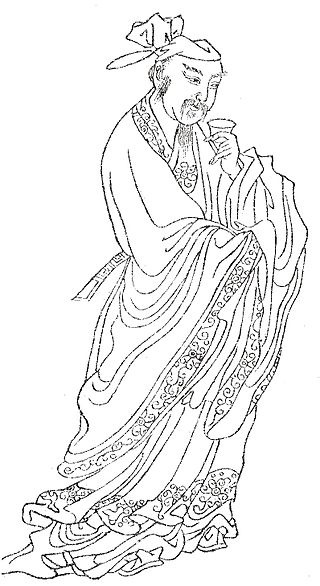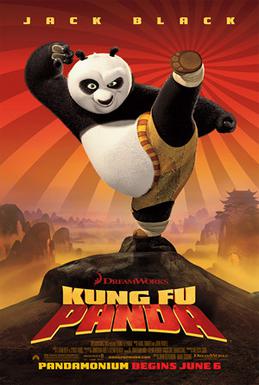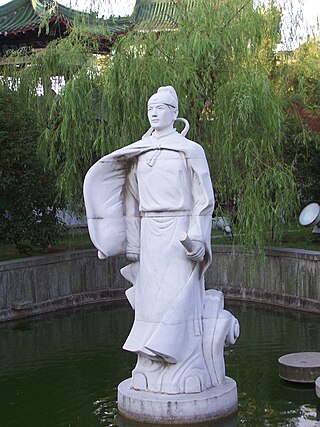
Li Bai, formerly pronounced Li Bo, courtesy name Taibai, was a Chinese poet acclaimed as one of the greatest and most important poets of the Tang dynasty and in Chinese history as a whole. He and his friend Du Fu (712–770) were two of the most prominent figures in the flourishing of Chinese poetry under the Tang dynasty, which is often called the "Golden Age of Chinese Poetry". The expression "Three Wonders" denotes Li Bai's poetry, Pei Min's swordplay, and Zhang Xu's calligraphy.

Du Fu was a Chinese poet and politician during the Tang dynasty. Together with his elder contemporary and friend Li Bai, Du is often considered one of the greatest Chinese poets. His greatest ambition was to serve his country as a successful civil servant, but Du proved unable to make the necessary accommodations. His life, like all of China, was devastated by the An Lushan Rebellion of 755, and his last 15 years were a time of almost constant unrest.

Du Mu (Chinese: 杜牧; pinyin: Dù Mù; Wade–Giles: Tu4 Mu4; 803–852) was a Chinese calligrapher, poet, and politician who lived during the late Tang dynasty. His courtesy name was Muzhi (牧之), and art name Fanchuan (樊川). He is best known for his lyrical and romantic quatrains.

Gokishichidō was the name for ancient administrative units organized in Japan during the Asuka period, as part of a legal and governmental system borrowed from the Chinese. Though these units did not survive as administrative structures beyond the Muromachi period (1336–1573), they did remain important geographical entities until the 19th century. The Gokishichidō consisted of five provinces in the Kinai (畿内) or capital region, plus seven dō (道) or circuits, each of which contained provinces of its own.

Kung Fu Panda is a 2008 American animated martial arts comedy film produced by DreamWorks Animation and distributed by Paramount Pictures. The first installment in the Kung Fu Panda franchise, it was directed by John Stevenson and Mark Osborne in their feature directorial debuts, and written by Jonathan Aibel and Glenn Berger from a story by Ethan Reiff and Cyrus Voris. The film stars the voices of Jack Black, Dustin Hoffman, Angelina Jolie, Ian McShane, Seth Rogen, Lucy Liu, David Cross, Randall Duk Kim, James Hong, Dan Fogler, Michael Clarke Duncan and Jackie Chan. The film, set in a version of ancient China populated by anthropomorphic animals, centers on a bumbling panda named Po (Black), a kung-fu enthusiast. When a notorious snow-leopard named Tai Lung (McShane) is foretold to escape at Chorh-Gom Prison, Po is unwittingly named the "Dragon Warrior", a prophesied hero worthy of reading a scroll that has been intended to grant its reader limitless power.
Fu Jian, originally named Pu Jian, courtesy name Jianye (建業), formally Emperor Jingming of (Former) Qin ( 秦景明帝), was the founding emperor of the Di-led Chinese Former Qin dynasty.

Wang Bo, courtesy name Zi'an (子安), was a Chinese poet during Tang dynasty, traditionally grouped together with Luo Binwang, Lu Zhaolin, and Yang Jiong as the Four Paragons of the Early Tang. He died at the age of 26, possibly from drowning, while going back from the Tang-ruled Jiaozhi after meeting his father.

Bakri or often Bukit Bakri is a town in Muar District, Johor, Malaysia. It is located along Federal Route 24 in Muar district, just ten kilometres east of Muar town. In 1991, it had a population of 10,000, which doubled by the 2000 census to 20,123. Now Bukit Bakri population is 30,280.

Drums of Fu Manchu (1940) is a 15-chapter Republic serial film based on the character created by Sax Rohmer. Though using the title of the ninth novel in the series, it actually is based on numerous elements from throughout the series to that point, cherry-picked by the writers. It starred Henry Brandon, William Royle and Robert Kellard. It was directed by the successful serial team constituee by William Witney and John English and is often considered one of the best serial films ever made.
Du Fuwei, known during service to Tang dynasty as Li Fuwei (李伏威), was an agrarian leader who rose against the rule of Emperor Yang of Sui at the end of the Chinese dynasty Sui dynasty. At one point, he had ambitions to take over the region south of the Yangtze River for himself, but he later chose to submit to Tang, receiving the title of Prince of Wu. In 622, fearing that Emperor Gaozu of Tang might doubt his loyalty, he went to the Tang capital Chang'an to pay homage to Emperor Gaozu and stayed at Chang'an. In 624, his general Fu Gongshi rose against Tang rule, claiming to have his blessing, and he subsequently died at Chang'an unexpectedly; after Fu's defeat, Emperor Gaozu, believing him to be complicit with Fu's rebellion, posthumously stripped his honors and made his wife and children servants. After Emperor Gaozu's son Li Shimin became emperor in 626, he knew that Du had not been complicit in Fu's plot, and therefore posthumously restored his honors and reburied him accordingly.
Fu Gongshi was an agrarian rebel leader who served as Du Fuwei's lieutenant during the disintegration of the Chinese Sui dynasty, who later followed Du in submitting to the Tang dynasty. In 623, while Du was at the Tang capital Chang'an, Fu rose against Tang rule at Danyang and declared himself emperor of a new state of Song. In 624, he was defeated by the Tang general Li Xiaogong. He fled, but was captured and delivered to Li Xiaogong, who executed him.

Du Fu Thatched Cottage is a 24-acre (97,000 m2) park and museum in honour of the Tang dynasty poet Du Fu at the western outskirts of Chengdu, adjacent to the Huanhua Xi. In 1961 the Chinese government made the cottage a National Heritage site.

Tang poetry refers to poetry written in or around the time of or in the characteristic style of China's Tang dynasty, and/or follows a certain style, often considered as the Golden Age of Chinese poetry. The Complete Tang Poems includes over 48,900 poems written by over 2,200 authors. During the Tang dynasty, poetry continued to be an important part of social life at all levels of society. Scholars were required to master poetry for the civil service exams, but the art was theoretically available to everyone. This led to a large record of poetry and poets, a partial record of which survives today. The two most famous poets of the period were Li Bai and Du Fu. The Qing dynasty selection, Three Hundred Tang Poems, has made Tang poetry familiar to educated Chinese in modern times.

The Wen Xuan, usually translated Selections of Refined Literature, is one of the earliest and most important anthologies of Chinese poetry and literature, and is one of the world's oldest literary anthologies to be arranged by topic. It is a selection of what were judged to be the best poetic and prose pieces from the late Warring States period to the early Liang dynasty, excluding the Chinese Classics and philosophical texts. The Wen Xuan preserves most of the greatest fu rhapsody and shi poetry pieces from the Qin and Han dynasties, and for much of pre-modern history was one of the primary sources of literary knowledge for educated Chinese.
Kung Fu Panda is an American media franchise that originally started in 2008 with the release of the animated feature film of the same name, produced by DreamWorks Animation. Following the adventures of the titular Po Ping, a giant panda who is improbably chosen as the prophesied Dragon Warrior and becomes a master of kung fu, the franchise is set in a fantasy wuxia genre version of ancient China populated by anthropomorphic animals. Although his status is initially doubted, Po proves himself worthy as he strives to fulfill his destiny.
Noon is a Cangin language of Senegal spoken in the Thiès region. There is an estimated population of 10,000- 50,000 speakers worldwide, rendering this language to be vulnerable. Ethnologue reports that it is 84% cognate with Lehar, essentially a divergent dialect, and 68% cognate with the other Cangin languages.
Du Kui, courtesy name Gongliang, was a musician and official who served under the warlord Liu Biao in the late Eastern Han dynasty of China. He served in the state of Cao Wei during the Three Kingdoms period.
Qian Hongzuo, courtesy name Yuanyou (元祐), also known by his temple name as the King Chengzong of Wuyue (吳越成宗), was the third king of Wuyue during the Five Dynasties and Ten Kingdoms period of China.
The Bureau of Military Affairs was the central government agency in charge of a state's military forces during the Five Dynasties and Ten Kingdoms period, Liao dynasty, Song dynasty and Yuan dynasty. It was headed by the Shumishi.

Asterix & Obelix: The Middle Kingdom is a 2023 French live-action adventure comedy film directed by Guillaume Canet, who also stars as Asterix. It is the fifth installment in the Asterix live-action film series.














